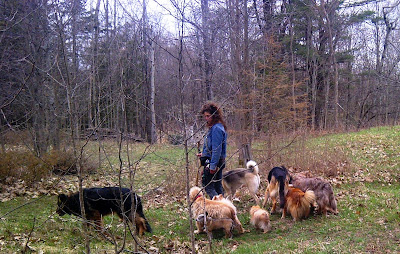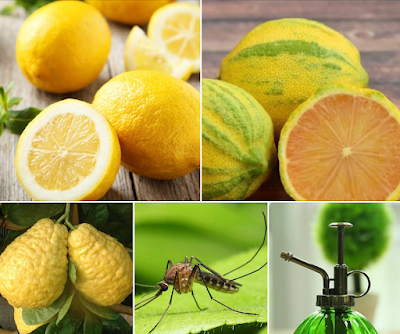Corn, Corn Derivatives Very Bad for Your Dog and Cat – A Real Threat to Health and Life-Span
In this
article:
- Serious Health Issues Caused by Corn and Corn Derivatives
- Examples of Pet food That Contain Corn and Corn Derivatives
- A List of Corn, Corn Derivatives and Other Ingredients That May Contain Corn
Pet
food products (dry food, wet food, treats, cat litter, dental care products, toothpaste,
etc.) that include corn and corn derivatives definitely compromise health and shorten
your dog’s and cat’s life-span.
At
the end of this article you will find an extensive list of ingredients that do
and may contain corn.
I recommend that you check the ingredients list on your dog's and cat's pet store food and health care products – if a product contains any of these items replace it with a healthy alternative...
I recommend that you check the ingredients list on your dog's and cat's pet store food and health care products – if a product contains any of these items replace it with a healthy alternative...
Serious Health Issues Caused by Corn and Corn Derivatives
Corn – Not a
Species Appropriate Food
Not
only is corn a filler and a nutrient poor food, it is also not a species
appropriate food for dogs and cats.
Aflatoxins –
Toxic, Carcinogenic
The majority of the corn (soy, rice and other grains) used in animal-grade food in North America is
not screened for aflatoxins. Aflatoxins grow mainly on grains but they also
grow on legumes - like peanuts, walnuts and pecans.
- Aflatoxins can also be found in cottonseed oil, fish meal and peanut oil.
- Foods (in this case corn - grains) that test positive for aflatoxins cannot be used for human grade food production. There are no such regulations for animal grade foods so aflatoxin positive crops can and are used in animal feed including commercial grade dog, cat and bird food;
- A dog's or cat's body can usually detoxify small amounts of aflatoxins, however;
- When aflatoxins are constantly present in the diet the liver and kidney cannot keep-up and as a result toxic loading on the dog's/cat's system increases.
- The toxic load increases exponentially when the body is already struggling to process a host of other toxins.
- Aflatoxins cause liver cancer.
Life Threatening
Glyphosate, Toxic, Carcinogenic
The
corn (and soy) used in most North American pet food is the fact that corn and
soy crops are grown from Genetically Engineered (GE), round-up ready seed. Round-up
is Monsanto’s most widely used and most aggressively marketed herbicide. The
active ingredient used in Round-up is a glyphosate – a health
and life threatening substance. Glyphosate residues get into ours’ and our
companion animals’ bodies via:
- The food chain (large factory farm fed animals);
- Processed foods that include corn and soy and derivatives, etc.
Round-up
is also destroying the health and viability of soil. Round-up was specifically designed to be used in partnership
with Monsanto’s Genetically Engineered ‘Round-up Ready’ seeds that – seeds that are engineered to
tolerate glyphosate. Plants adapt, including the ‘weeds’ that glyphosate was
originally designed to kill. The weeds have become ever more resistant to
glyphosate. As a result farmers are using more and more of the powerful toxic,
carcinogenic herbicide. Genetically engineered crops are literally drenched with glyphosate.
When
the food crop is harvested toxic glyphosate residue remains on the grain and subsequently remains in the resulting food product.
Glyphosate is also an endocrine disruptor – the terrible toll resulting
from this is discussed further below.
Immune System
Suppressor and Allergen
Grains
are a major cause of food sensitivities and allergies in dogs and cats. Both
species digestive systems' are not evolved to consume sugar or a diet that is
heavily laden with carbohydrates – especially not refined carbohydrates. As
such a dog’s and a cat’s immune system may recognize grains as a foreign
substance, in which case the animal’s immune system can become overly active in
its quest to battle the foreign substance. The over-active immune system can
result in the creation of an allergy to the substance.
When
an allergy occurs many veterinarians prescribe steroids. Unfortunately steroids turn
the immune system off.
With
the immune system shut down the the body cannot perform its normal
self-regulatory function to keep the balance between good and bad flora in the
gut.
Yeast
feeds on sugar. Sugar is also an inflammatory and a contributing factor to
cancer. When too much sugar is present the natural balance of good bacteria vs.
bad bacteria can become disrupted leading to an overgrowth of bad bacteria
which results in an overgrowth of yeast – a ‘yeast bloom’.
A
dog’s and cat’s digestive system quickly converts refined carbohydrates such as
grains - i.e. corn, wheat, rice into sugar. In addition, some dog food and
treats contain sugar. As the yeast grows it spreads through the blood stream
and can end-up in the ears creating an ear infections, in the paws there by creating a yeast infection in the paws and in more extreme cases the entire surface of the body’s skin
may be inflamed with the yeast infection.
Veterinarians often prescribe conventional antibiotics and anti-fungal drugs for yeast infections. Antibiotics kill both good and bad bacteria. This may then result in a further blooming of yeast, and if the root cause
of the allergy is not resolved, the yeast infection can become a reoccurring
and chronic condition. In severe cases of yeast infection, carbohydrates such
as potatoes and sweat potatoes may also need to be eliminated from the diet.
Even honey which does have immune system boosting properties may have to be eliminated. By
adding to the daily diet, immune system boosting foods such as organic unpasteurized, unfiltered apple cider vinegar, garlic, turmeric and probiotics you can help
eliminate the infection and prevent re-occurrence.
Brain
Function Disruptor
A
diet that has a high content of processed grains can be a major contributing
factor to impaired brain function. While no dry dog food provides the correct
balance of Omega-3 to Omega-6 fatty acids, the balance gets further exacerbated
when that food includes high levels of processed grains such as corn. Remember
that upon ingestion, grains get converted to sugar very quickly. This spikes
the body’s insulin levels which in return creates a spike in Omega-6 fatty
acids. High-levels of Omega-6 fatty acids cause cellular inflammation. Omega-3
fatty acids are the brain’s anti-inflammatory. If you are feeding your dog a
commercially manufactured dog food, and nothing else - your dog’s Omega-3 fatty
acid levels are much to low and Omega-6 too high. Your dog’s brain is not
getting what it needs to function optimally. You can read more about that here.
As
noted further above, grains - particularly genetically engineered corn disrupt the health of the
gut. Disruption of the gut effects physical health and mental health. Serotonin
is a neurotransmitter that helps to regulate mood control, depression and
aggression. The greatest concentration of serotonin is found in the gut, not in
the brain, as many people assume. So, if the gut is not healthy serotonin
levels can end-up being seriously impacted, and so too psychological health.
Endocrine
Disruptor with Multiple Severe and Lethal Consequences
Glyphosate is an endocrine disrupter. Gluphosate is a known source of the following (in people and companion animals): Autisim; Alzheimer’s disease; cancer (various types) and is now being recognized as a definitive contributing factor to the development of breast cancer; depression; digestive issues; liver disease; Parkinson’s disease; and miscarriages and birth defects in humans and companion animals.
Glyphosate is an endocrine disrupter. Gluphosate is a known source of the following (in people and companion animals): Autisim; Alzheimer’s disease; cancer (various types) and is now being recognized as a definitive contributing factor to the development of breast cancer; depression; digestive issues; liver disease; Parkinson’s disease; and miscarriages and birth defects in humans and companion animals.
Of all the crops grown in North America - corn ranks as #1 for chemical-intensive agri-growth - responsible for:
- Almost half of all nitrogen and phosphorous fertilizer use the impacts of which are highly destructive;
- 40% of pesticide use in North America, and;
- 80% of the weed-killer atrazine which has been proven to cause changes in gender in animals - remember humans are animals too;
- You can read more about the very harmful effects of growing GMO corn here.
In
addition glyphosate kills beneficial insects such as bees – without bees there
will be no food crops. You can read about that here and here.
I also recommend avoiding all corn-based cat litter products.
Examples of
Pet food That Contain Corn and Corn Derivatives
Many
of the Prescription dog and cat foods sold in Veterinarian’s offices are
corn-based – you can see some examples and read about them here.
Many
of the Prescription dog and cat foods sold in Veterinarian’s offices are
corn-based – you can see some examples and read about them here.
Five
Mega Multi-National Companies - Five Common Household Names - So Much
Deception…The Big Five listed above produce multiple brands of some of the most
popular dog and cat food and treats available in North America. What you might
not know is that their products are a serious threat to your dog’s, cat’s
health and longevity...you can see some examples and read about them here.
To
see some examples of common corn and corn derivative included foods sold at pet
stores you can take a look here.
Ingredients
to Avoid...
A List of Corn, Corn Derivatives and Other Ingredients That May
Contain Corn
Ingredients That Definitely
Contain Corn
Corn
Corn extract
Corn flour
Corn gluten
Corn oil
Corn meal
Corn starch
Corn sweetener
Corn sugar
Corn syrup
Corn syrup solids
Cornstarch
High fructose corn syrup
Hydrolyzed corn
Hydrolyzed corn protein
Maize
Modified corn starch
White vinegar (that is not labeled Non-GMO, or USDA organic)
White vinegar (that is not labeled Non-GMO, or USDA organic)
Ingredients That May Contain Corn…
Alpha tocopherol
Artificial flavorings
Ascorbates
Ascorbic acid
Barley malt
Bleached flour (also look for look
for ‘cereal findings,’ ‘end mill run’)
Brown sugar (light brown)
Calcium citrate
Calcium fumarate
Calcium gluconate
Calcium lactate
Calcium magnesium acetate (CMA)
Calcium stearate
Calcium stearoyl lactylate
Caramel and caramel color
Carbonmethylcellulose sodium
Cellulose microcrystalline
Cellulose, methyl
Cellulose, powdered
Citric acid
Flavorings
Food starch
Fumaric acid
Germ/germ meal
Gluconate
Glucosamine
Glucose
Glucose syrup
Glutamate
Gluten
Gluten feed and Gluten meal
Glycerides
Glycerin
Glycerol
Hydrolyzed vegetable protein
Hydroxypropyl methylcellulose
Hydroxypropyl methylcellulose
pthalate (HPMCP)
Lactate
Lactic acid
Lauryl glucoside
Lecithin
Linoleic acid
Lysine
Magnesium fumarate
Malic acid
Malonic acid
Malt syrup from corn
Malt, malt extract
Maltitol
Maltodextrin
Maltol
Maltose
Methyl gluceth
Methyl glucose
Methyl glucoside
Methylcellulose
Microcrystaline cellulose
Modified cellulose gum
Modified food starch
Molasses (corn syrup may be
present)
Mono and di glycerides
MSG
Potassium citrate
Potassium fumarate
Potassium gluconate
Propionic acid
Propylene glycol
Propylene glycol monostearate
Salt (iodized salt)
Semolina (unless from wheat)
Simethicone
Sodium carboxymethylcellulose
Sodium citrate
Sodium erythorbate
Sodium fumarate
Sodium lactate
Sodium starch glycolate
Sodium stearoyl fumarate
Sorbate
Sorbic acid
Sorbitan
Sorbitol
Sorghum (the syrup and/or the grain
may be mixed with corn)
Starch
Stearic acid
Sterols
Tocopherol (vitamin E)
Unmodified starch
Xanthan gum
Holistic Diet, Nutrition, Wellness Services Tailored to Your Individual Dog and Cat
For information about my holistic diet, nutrition and wellness services, visit my holistic wellness services page.
Maintain good health | Address acute and chronic health issues | Pre and post surgery support and recovery
My holistic wellness services are available worldwide via video consultation.
🌎 USA | Canada | UK | Europe | Australia | New Zealand | Asia | South and Central America | Africa | UAE
📱FaceTime | Facebook | Skype | WhatsApp
To set-up your holistic wellness consultation get in-touch via email, go to my contact me page.
Holistic Behavioral Services for Your Dog
For information about my holistic behavioral services, visit my holistic behavioral services page.
For dogs of all ages, sizes and breeds.
My behavioral services are available worldwide via video consultation.
🌎 USA | Canada | UK | Europe | Australia | New Zealand | Asia | South and Central America | Africa | UAE
📱FaceTime | Facebook | Skype | WhatsApp
To set-up your holistic behavioral session get in-touch via email, go to my contact me page.
Affiliations to Companies
✓ None.
✓ I don't sell food, supplements, or other products.
✓ I'm not aligned with any companies.
Article and graphics by Karen Rosenfeld.












